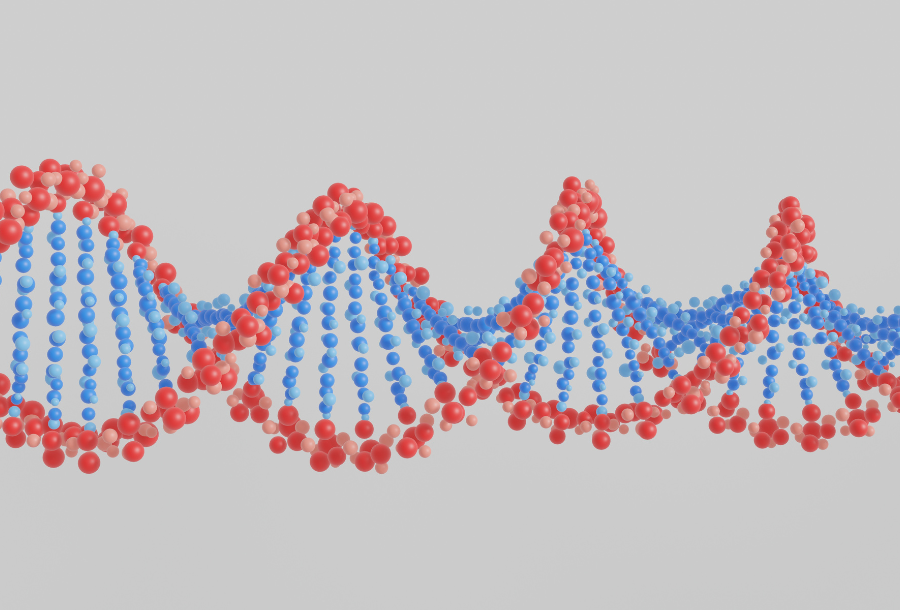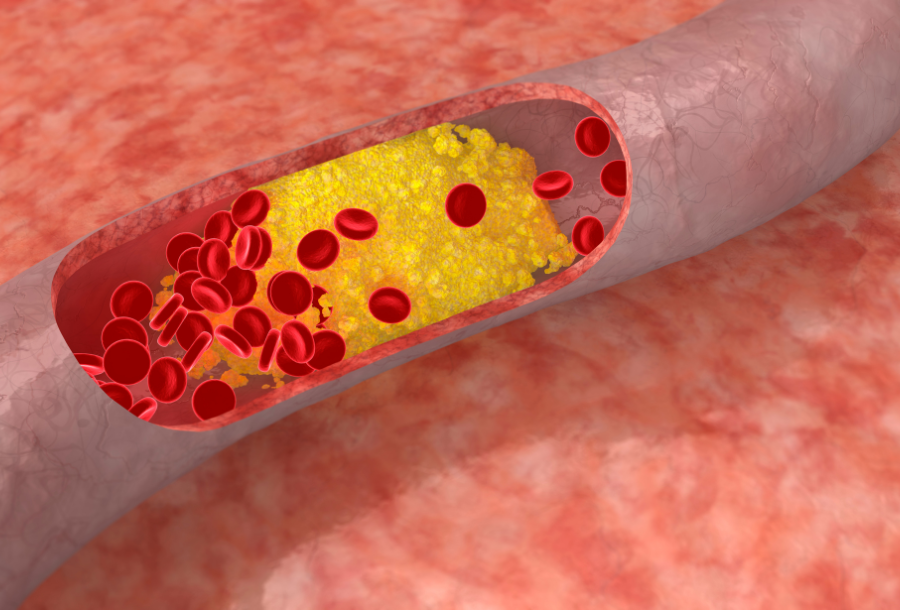
Understanding the physiological response to exercise
November 18, 2022
Understand the physiological adaptations thatoccur in the body with regular exercise, the positive impact on metabolichealth, and the effects of detraining. Learn how consistent physical activitycan improve heart health, aerobic capacity and insulin sensitivity.
Key Takeaways:
- Regular exercise induces physiological adaptations in the musculoskeletal, cardiovascular and respiratory systems.
- Exercise improves heart health, increases aerobic capacity, reduces blood pressure and enhances peripheral blood vessel function.
- Physical activity has positive effects on skeletal muscle, including enhanced oxidative capacity, increased mitochondrial content, improved insulin sensitivity and muscle hypertrophy.
- Regular exercise promotes metabolic health by maintaining blood sugar levels, which reduces the risk of chronic inflammation.
- Detraining, or cessation of exercise, can quickly reverse the benefits of regular physical activity.
Engaging in regular physical activity has a plethora of beneficial effects on both physical health and cognitive function. One major benefit is maintaining good metabolic health, which helps prevent metabolic syndrome. This condition can harm the heart and lead to chronic illnesses like heart disease, stroke and type 2 diabetes.
When you engage in physical exercise for a period of months or years, your body undergoes some amazing physiological changes. These changes are part of your body's physiological response to exercise, as it adapts to the increased demands placed on it. The physiological response to body exercise is a complex process that involves the interplay of various body systems, including the cardiovascular, respiratory and musculoskeletal systems, among others.
Physical activity stimulates a series of physiological adaptations that improve performance and capacity. This intricate physiological response to body exercise includes increased heart rate and blood flow, improved lung capacity and oxygen uptake, enhanced muscle strength and endurance and adaptations in various metabolic processes. These adaptations not only help improve overall physical fitness but also contribute to the prevention of chronic health conditions.
In this article, we will explore the physiological adaptations that occur in the body as a result of regular exercise, the benefits of exercise for metabolic health, and the influence of exercise on different body systems. We will also discuss the effects of detraining and provide tips for maintaining physical activity to avoid losing the benefits of exercise.
Physiological adaptations to regular exercise
Regular exercise triggers a host of physiological adaptations in the body, enhancing its performance and capacity. These adaptations, part of the body's physiological adaptations in response to long-term exercise, involve various systems, including the musculoskeletal, cardiovascular and respiratory systems.
Some key physiological effects of exercise include:
- Cardiovascular adaptations: Exercise improves heart health by enhancing endothelial function, leading to adequate blood supply to various organs and surrounding connective tissues. This helps prevent coronary artery disease and high blood pressure. Cardiovascular benefits include structural heart changes, increased VO₂ max, decreased resting blood pressure and heart rate, and improved peripheral blood vessel function.
- Skeletal muscle adaptations: Exercise increases the oxidative capacity of skeletal muscle, allowing it to extract more oxygen from the blood for energy. It also boosts mitochondrial content in muscle fibres, enhancing energy generation. Regular physical activity improves insulin sensitivity in skeletal muscle, making cells more responsive to insulin and glucose usage. Muscular hypertrophy (growth) occurs, which increases lean muscle mass and improves resting heart rate while raising the basal metabolic rate (BMR).
- Metabolic adaptations: Increased physical activity levels lead to significant metabolic adaptations due to improved glucose control, which lowers the risk of chronic inflammation associated with many chronic diseases. Exercise enhances beta cell function in the liver, aiding insulin regulation. Physical activity increases the liver's ability to oxidise fat for energy, lowering the risk of fatty liver disease. Exercise also increases sensitivity to glucagon, another hormone that prevents blood glucose levels from falling too low.
- Adipose tissue adaptations: Exercise affects adipose tissue by increasing mitochondrial activity, decreasing cell size and lipid content, reducing inflammation and enhancing lipokine production, which improves tissue-to-tissue communication during exercise.
Effects of exercise on body systems
Engaging in regular exercise positively influences various body systems, contributing to overall health and wellbeing:
Cardiovascular System
Exercise improves cardiac output, allowing the heart to pump more blood with each beat, delivering oxygen and nutrients to the body more efficiently. Blood vessels become more elastic, reducing the risk of heart diseases.
Respiratory System
With regular exercise, lung capacity improves, increasing oxygen exchange efficiency. This results in greater stamina and reduced breathlessness during physical activities.
Musculoskeletal System
Exercise helps maintain healthy bones, joints and muscles, reducing the risk of osteoporosis, arthritis and musculoskeletal disorders. Physical activity also increases muscle mass, enhancing strength and endurance.
Endocrine System
Exercise improves insulin sensitivity and glucose metabolism, reducing the risk of type 2 diabetes. Physical activity also stimulates the release of endorphins, which boost mood and help relieve stress.
Immune System
Regular exercise enhances immune function, increasing resistance to infections and chronic diseases.
What detraining does to the physiological effects of exercise
The beneficial effects of exercise can quickly fade once the training stimulus is removed. Detraining is the process of reversing exercise-induced adaptations such as blood supply, oxidative capacity and insulin sensitivity.
According to a study published by the Centers for Disease Control and Prevention, just two weeks of physical inactivity can significantly reduce the benefits of exercise. Therefore, consistency is key to experiencing physiological adaptations to physical activity.
To prevent detraining and physical inactivity, consider the following tips:
- Set a schedule. Establish a consistent exercise routine by choosing specific days and times for your workouts. This creates a sense of accountability and makes it easier to prioritise physical activity.
- Choose activities you enjoy. Engage in activities that are fun and enjoyable. Whether it's cycling, swimming, dancing or hiking, finding something you love will make it easier to stay motivated and consistent.
- Incorporate variety. Mix up your workouts to prevent boredom and keep your body challenged. This could involve varying the type of exercise, changing the intensity or trying different sports or activities.
- Get a workout buddy. Exercising with a friend can provide motivation, support, and a sense of accountability. It can also make your workouts more enjoyable and social.
- Set achievable goals. Establishing realistic goals and tracking your progress can help you stay motivated. Whether it's running a certain distance, lifting a specific weight or achieving a desired body composition, having goals can give you a sense of purpose and direction.
- Listen to your body. It's essential to give your body the necessary time to recover after intense workouts. Adequate rest and recovery are crucial for preventing injuries, overtraining and burnout.
- Stay active during breaks. If you need to take a break from your regular exercise routine due to travel, illness or other life events, find ways to stay active. This could involve going for walks, doing home workouts or engaging in low-impact activities.
- Seek professional guidance. If you're struggling to stay active or need guidance on creating a balanced workout routine, consult a physiotherapist or exercise physiologist. They can provide tailored advice and support to help you stay on track.
Remember, physical activity is a lifelong commitment. While taking breaks is natural, it's essential to resume exercise as soon as possible to prevent detraining and enjoy the long-term benefits of regular physical activity.
Integrating exercise into daily life is essential for maintaining physical and mental health. Any type of exercise, aerobic or anaerobic, is preferable to a sedentary lifestyle, which can negatively impact cognitive function, protect against cardiovascular disease and mental health.
At Vively, we understand the importance of metabolic health for your overall wellbeing. Our metabolic health app can help you improve glucose control, which is essential for reducing the risk of chronic diseases. Learn more about how Vively can support your journey towards a healthier and more active life.
Meet our team.
Subscribe to our newsletter & join a community of 50,000+
Get access to limited content drops, free invites to expert fireside chats, and exclusive offers.

Understanding the physiological response to exercise
Understand the physiological adaptations thatoccur in the body with regular exercise, the positive impact on metabolichealth, and the effects of detraining. Learn how consistent physical activitycan improve heart health, aerobic capacity and insulin sensitivity.
Key Takeaways:
- Regular exercise induces physiological adaptations in the musculoskeletal, cardiovascular and respiratory systems.
- Exercise improves heart health, increases aerobic capacity, reduces blood pressure and enhances peripheral blood vessel function.
- Physical activity has positive effects on skeletal muscle, including enhanced oxidative capacity, increased mitochondrial content, improved insulin sensitivity and muscle hypertrophy.
- Regular exercise promotes metabolic health by maintaining blood sugar levels, which reduces the risk of chronic inflammation.
- Detraining, or cessation of exercise, can quickly reverse the benefits of regular physical activity.
Engaging in regular physical activity has a plethora of beneficial effects on both physical health and cognitive function. One major benefit is maintaining good metabolic health, which helps prevent metabolic syndrome. This condition can harm the heart and lead to chronic illnesses like heart disease, stroke and type 2 diabetes.
When you engage in physical exercise for a period of months or years, your body undergoes some amazing physiological changes. These changes are part of your body's physiological response to exercise, as it adapts to the increased demands placed on it. The physiological response to body exercise is a complex process that involves the interplay of various body systems, including the cardiovascular, respiratory and musculoskeletal systems, among others.
Physical activity stimulates a series of physiological adaptations that improve performance and capacity. This intricate physiological response to body exercise includes increased heart rate and blood flow, improved lung capacity and oxygen uptake, enhanced muscle strength and endurance and adaptations in various metabolic processes. These adaptations not only help improve overall physical fitness but also contribute to the prevention of chronic health conditions.
In this article, we will explore the physiological adaptations that occur in the body as a result of regular exercise, the benefits of exercise for metabolic health, and the influence of exercise on different body systems. We will also discuss the effects of detraining and provide tips for maintaining physical activity to avoid losing the benefits of exercise.
Physiological adaptations to regular exercise
Regular exercise triggers a host of physiological adaptations in the body, enhancing its performance and capacity. These adaptations, part of the body's physiological adaptations in response to long-term exercise, involve various systems, including the musculoskeletal, cardiovascular and respiratory systems.
Some key physiological effects of exercise include:
- Cardiovascular adaptations: Exercise improves heart health by enhancing endothelial function, leading to adequate blood supply to various organs and surrounding connective tissues. This helps prevent coronary artery disease and high blood pressure. Cardiovascular benefits include structural heart changes, increased VO₂ max, decreased resting blood pressure and heart rate, and improved peripheral blood vessel function.
- Skeletal muscle adaptations: Exercise increases the oxidative capacity of skeletal muscle, allowing it to extract more oxygen from the blood for energy. It also boosts mitochondrial content in muscle fibres, enhancing energy generation. Regular physical activity improves insulin sensitivity in skeletal muscle, making cells more responsive to insulin and glucose usage. Muscular hypertrophy (growth) occurs, which increases lean muscle mass and improves resting heart rate while raising the basal metabolic rate (BMR).
- Metabolic adaptations: Increased physical activity levels lead to significant metabolic adaptations due to improved glucose control, which lowers the risk of chronic inflammation associated with many chronic diseases. Exercise enhances beta cell function in the liver, aiding insulin regulation. Physical activity increases the liver's ability to oxidise fat for energy, lowering the risk of fatty liver disease. Exercise also increases sensitivity to glucagon, another hormone that prevents blood glucose levels from falling too low.
- Adipose tissue adaptations: Exercise affects adipose tissue by increasing mitochondrial activity, decreasing cell size and lipid content, reducing inflammation and enhancing lipokine production, which improves tissue-to-tissue communication during exercise.
Effects of exercise on body systems
Engaging in regular exercise positively influences various body systems, contributing to overall health and wellbeing:
Cardiovascular System
Exercise improves cardiac output, allowing the heart to pump more blood with each beat, delivering oxygen and nutrients to the body more efficiently. Blood vessels become more elastic, reducing the risk of heart diseases.
Respiratory System
With regular exercise, lung capacity improves, increasing oxygen exchange efficiency. This results in greater stamina and reduced breathlessness during physical activities.
Musculoskeletal System
Exercise helps maintain healthy bones, joints and muscles, reducing the risk of osteoporosis, arthritis and musculoskeletal disorders. Physical activity also increases muscle mass, enhancing strength and endurance.
Endocrine System
Exercise improves insulin sensitivity and glucose metabolism, reducing the risk of type 2 diabetes. Physical activity also stimulates the release of endorphins, which boost mood and help relieve stress.
Immune System
Regular exercise enhances immune function, increasing resistance to infections and chronic diseases.
What detraining does to the physiological effects of exercise
The beneficial effects of exercise can quickly fade once the training stimulus is removed. Detraining is the process of reversing exercise-induced adaptations such as blood supply, oxidative capacity and insulin sensitivity.
According to a study published by the Centers for Disease Control and Prevention, just two weeks of physical inactivity can significantly reduce the benefits of exercise. Therefore, consistency is key to experiencing physiological adaptations to physical activity.
To prevent detraining and physical inactivity, consider the following tips:
- Set a schedule. Establish a consistent exercise routine by choosing specific days and times for your workouts. This creates a sense of accountability and makes it easier to prioritise physical activity.
- Choose activities you enjoy. Engage in activities that are fun and enjoyable. Whether it's cycling, swimming, dancing or hiking, finding something you love will make it easier to stay motivated and consistent.
- Incorporate variety. Mix up your workouts to prevent boredom and keep your body challenged. This could involve varying the type of exercise, changing the intensity or trying different sports or activities.
- Get a workout buddy. Exercising with a friend can provide motivation, support, and a sense of accountability. It can also make your workouts more enjoyable and social.
- Set achievable goals. Establishing realistic goals and tracking your progress can help you stay motivated. Whether it's running a certain distance, lifting a specific weight or achieving a desired body composition, having goals can give you a sense of purpose and direction.
- Listen to your body. It's essential to give your body the necessary time to recover after intense workouts. Adequate rest and recovery are crucial for preventing injuries, overtraining and burnout.
- Stay active during breaks. If you need to take a break from your regular exercise routine due to travel, illness or other life events, find ways to stay active. This could involve going for walks, doing home workouts or engaging in low-impact activities.
- Seek professional guidance. If you're struggling to stay active or need guidance on creating a balanced workout routine, consult a physiotherapist or exercise physiologist. They can provide tailored advice and support to help you stay on track.
Remember, physical activity is a lifelong commitment. While taking breaks is natural, it's essential to resume exercise as soon as possible to prevent detraining and enjoy the long-term benefits of regular physical activity.
Integrating exercise into daily life is essential for maintaining physical and mental health. Any type of exercise, aerobic or anaerobic, is preferable to a sedentary lifestyle, which can negatively impact cognitive function, protect against cardiovascular disease and mental health.
At Vively, we understand the importance of metabolic health for your overall wellbeing. Our metabolic health app can help you improve glucose control, which is essential for reducing the risk of chronic diseases. Learn more about how Vively can support your journey towards a healthier and more active life.
Get irrefutable data about your diet and lifestyle by using your own glucose data with Vively’s CGM Program. We’re currently offering a 20% discount for our annual plan. Sign up here.
Next articles

Understanding the causes of insulin resistance
Unravel the mystery of insulin resistance, its causes and implications for your health. Explore evidence-based strategies to prevent and manage this condition and optimise your metabolic health.



 Share
Share Tweet
Tweet Share
Share















